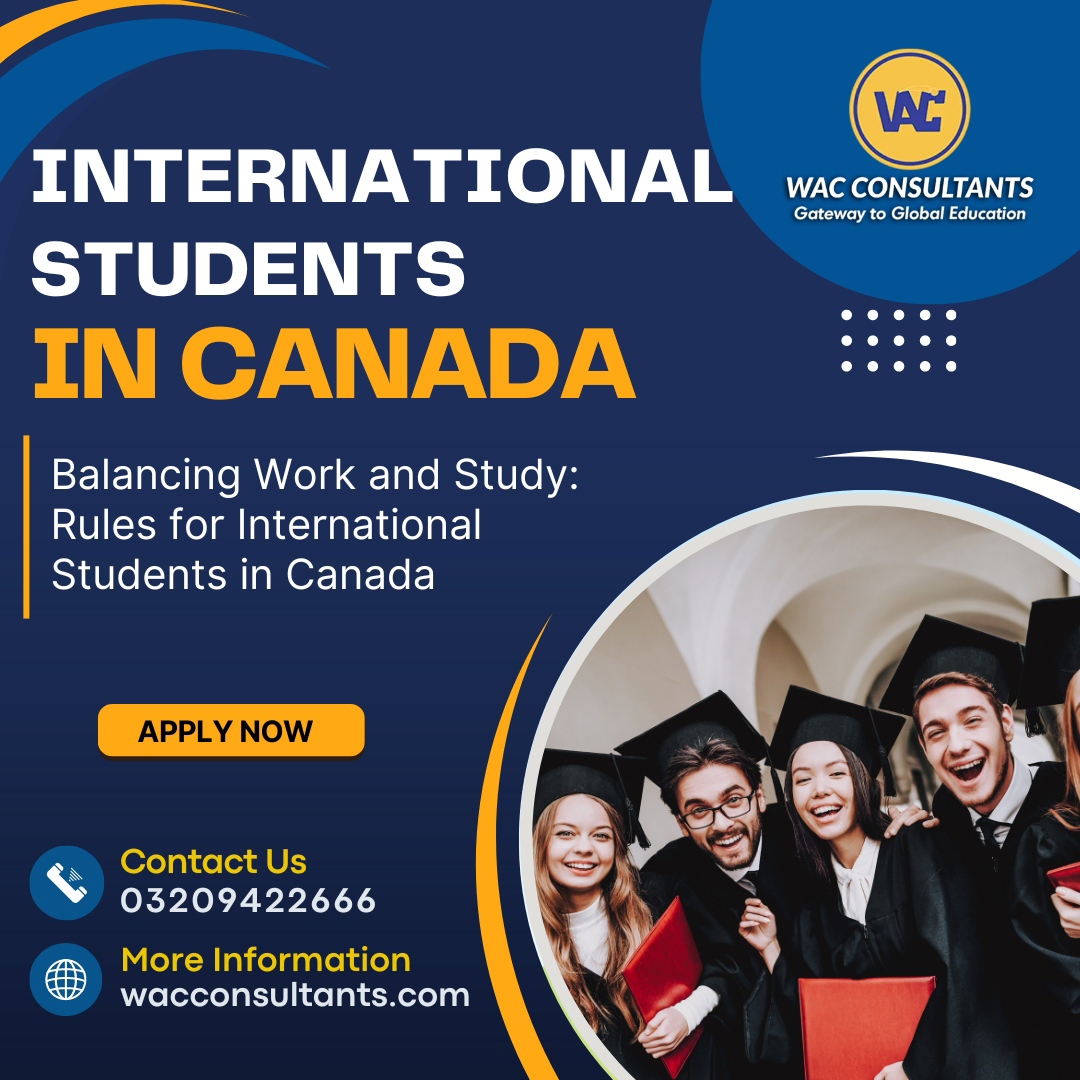Student work permit
An Overview of International Students in Canada
Canada is well-known for its inclusive and high-quality education system, which draws a broad group of international students. The purpose of this page is to offer insight on the different restrictions and procedures imposed on international students seeking employment while studying in Canada.
International Students’ Visa Requirements
The first step for overseas students is to secure the necessary visa. Canada provides a variety of visas, including study and employment permits. Work permit rules may differ depending on the type of visa received and the length of the program.
Work Restrictions for International Students
International students in Canada have specific restrictions in terms of working hours and job options. Regulations limit the number of hours students can work while studying.
International students must meet certain requirements in order to be hired. Working conditions for off-campus jobs differ from those for on-campus jobs. These requirements are critical for ensuring compliance with Canadian immigration regulations.
Work hours allowed throughout semesters of study.
International students in Canada are often authorized to work part-time during their academic semesters. The maximum hours allowed for work during study semesters are normally 20 hours per week, according to legislation. This restriction is in place to ensure that students can balance their career and academic responsibilities without jeopardizing their studies. However, international students must verify and follow their unique visa and work permit rules, which can vary depending on individual circumstances and the type of visa received. Compliance with these restrictions is critical in order to avoid legal ramifications while seeking employment in Canada during study semesters.
The Advantages of Working as an International Student
Despite the limitations, working as an international student in Canada offers various benefits. It offers professional development, financial assistance, and excellent work experience.
Resources and Support Systems
Canadian educational institutions provide assistance to international students in negotiating labor rules and locating employment possibilities. Furthermore, community support networks play an important role in assisting students during their stay.
Compliance and Advisory
International students must follow visa and labor rules. Seeking advice from authorized sources assures compliance with Canadian legislation and avoids legal ramifications.
Tips for Getting a Job
To boost their chances of getting acceptable positions, overseas students can use job search tactics, network, and create relationships within their field of study.
Strategies for balancing work and academic duties
Organize and prioritize: Make a schedule that includes your employment hours, class times, and study times. To manage time efficiently, prioritize tasks based on urgency and importance.
Set Achievable Goals: Set attainable goals for both work and academics. To avoid feeling overwhelmed, divide major chores into smaller, more manageable ones.
Improve your time management skills by using tools like calendars or apps to schedule things. To maintain a balanced routine, set aside defined time periods for work and study.
Work place Communication: Be upfront and honest with your workplace about your academic obligations. Discuss the potential of flexible work hours or altering schedules as needed.
Avoid Over commitment: Try not to take on more work hours than you can handle in addition to your academics. Balance is essential for avoiding weariness and maintaining productivity.
Make Use of Breaks: Use breaks between classes or work shifts for quick study sessions or to review notes. Make the most of these shorter periods for increased production.
Seek Academic Support: Use your educational institution’s resources, such as tutoring programs or study clubs, to seek help with difficult courses or coursework.
Self-Care and healthily-Being: Make self-care a priority by getting enough sleep, eating healthily, and exercising. Stress management and concentration require a healthy mind and body.
Experiment with different study strategies to find out which ones work best for you. Adapt your study methods to fit your work schedule and maximize learning.
Regular Evaluation and Adaptation: Evaluate your schedule and strategies on a regular basis. Make necessary adjustments to preserve a healthy work-academic balance.
Implementing these tactics can assist overseas students in properly managing their work hours while also balancing their academic duties in Canada, resulting in a successful and balanced experience.
International students in Canada face unique constraints and criteria when looking for work. Understanding and following these rules is critical for a successful academic and professional career in the country
FAQs
Yes, when studying, ecumenical college students are conventionally constrained to a wide variety of working hours per week.
Working more than 20 hours a week on a Philomath visa in Canada is in opposition to the rules. It can lead to consequences such as being requested to depart the country, losing student visa status, or having to obtain future visas to Canada.
Yes, in remote places, college students can work in Canada under certain conditions designated in their visa laws.


